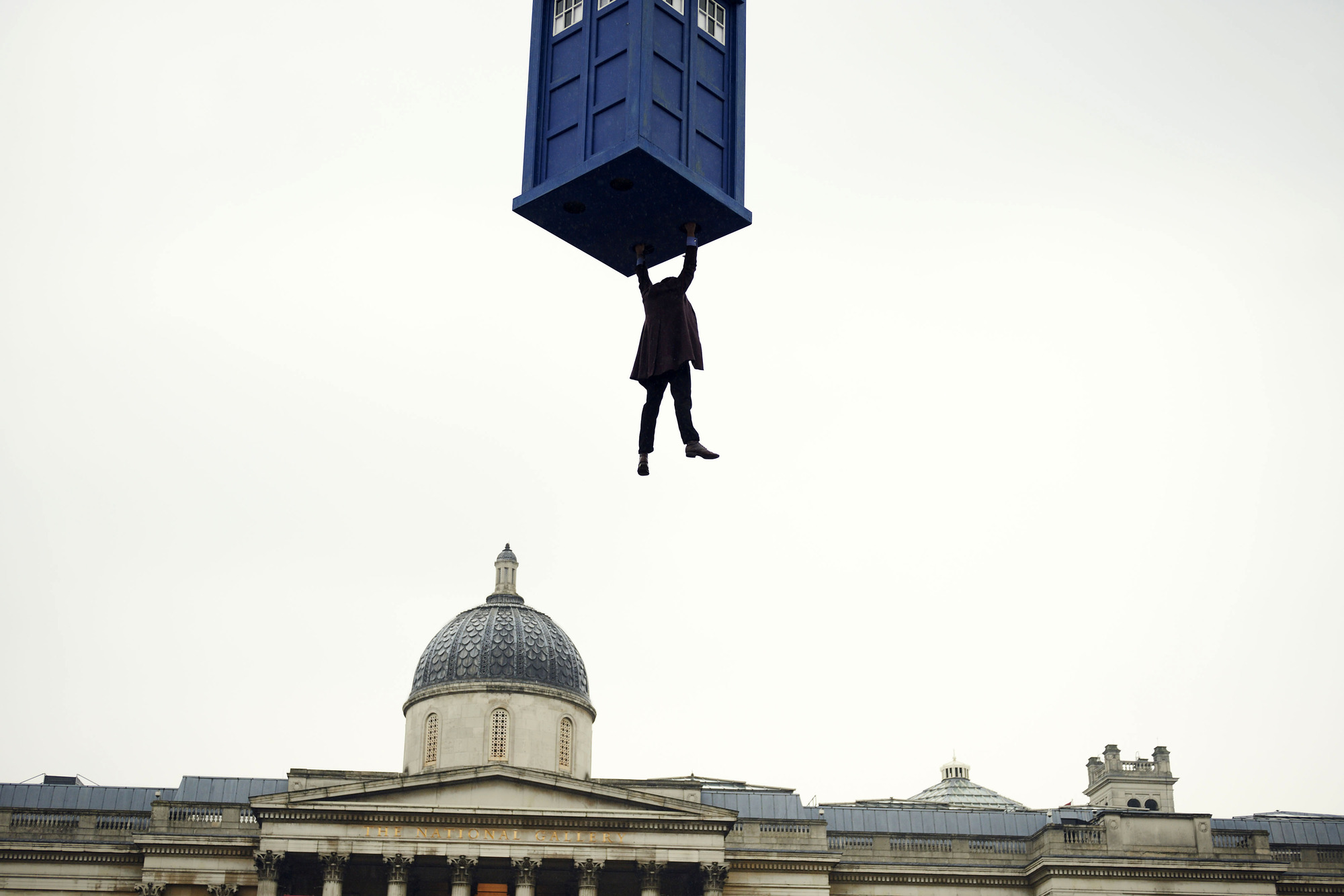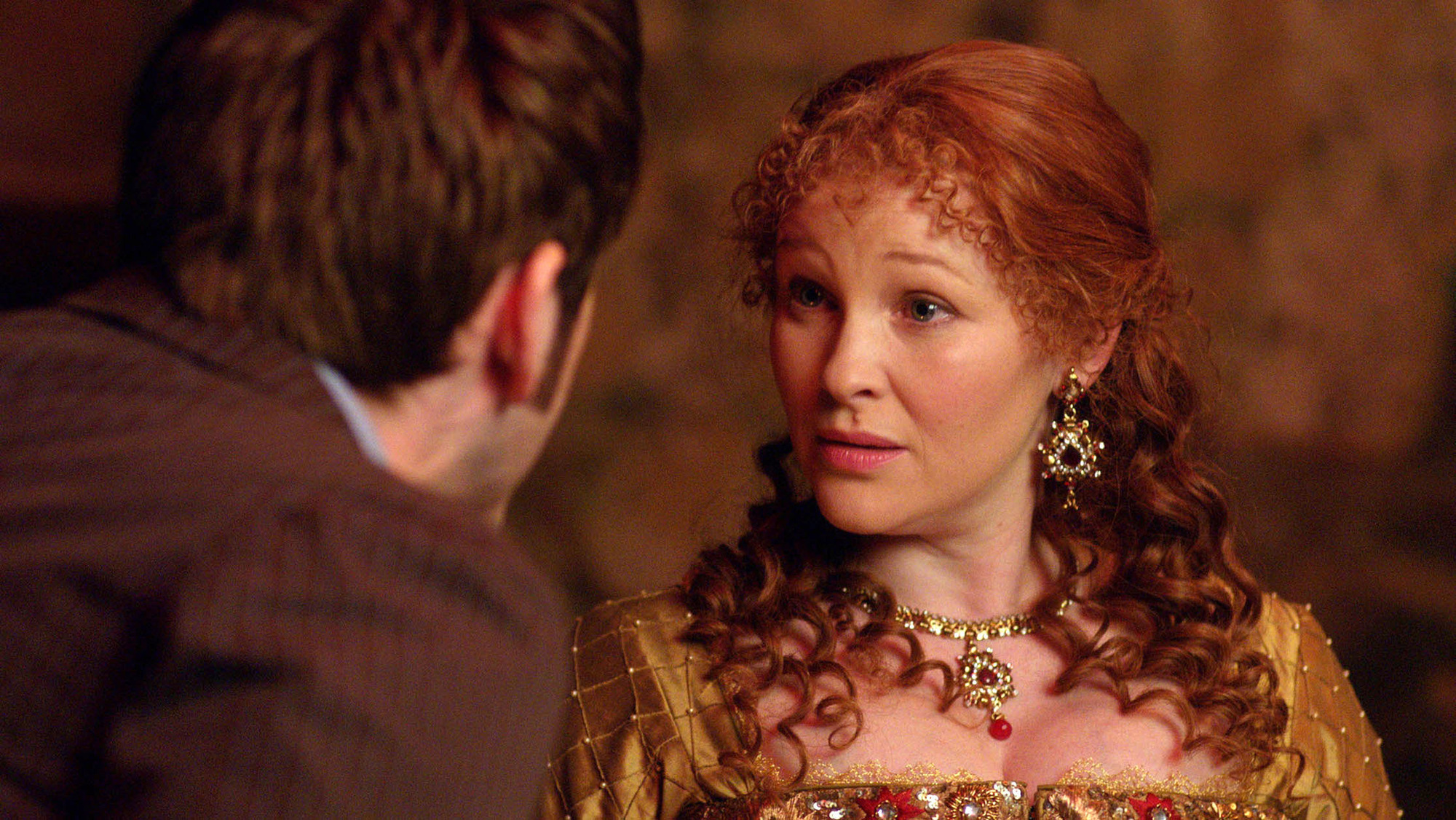Well, wasn't that fantastic? Three Doctors; guest appearances from just about every fan favourite you could think of and enough in-jokes to satisfy even the most committed Whovian. Plus, anybody whose interests incorporate the musical career of one John Barrowman certainly wouldn’t have been disappointed.
I’m talking, of course, about The Five(ish) Doctors Reboot, a half-hour Red Button special written and directed by fifth Doctor Peter Davison. This little treat, intended to reward those of us with the dedication to sit through the truly terrible Doctor Who Live: The Afterparty on BBC Three, featured Davison and his successors Colin Baker and Sylvester McCoy trying to right the injustice that resulted in them being left out of the 50th anniversary special episode. With so many laughs, whether they succeeded or not is irrelevant.
Allowing the current Doctor to come to terms with adulthood again paves the way for Peter Capaldi’s entry as the 13thBesides, it’s hard to imagine that showrunner Steven Moffat could have crammed much more into The Day of the Doctor, a near-perfect opus that will likely be remembered as some of his finest work when the time comes for him to hand over the reins of Doctor Who. (Incidentally, although I have always come down firmly on the side of avoidance when it comes to spoilers, I have come to the conclusion that it is nigh-on impossible to do in this case. So, for those of you who were waiting for the verdict of theartsdesk before picking up the episode on iPlayer - let those five stars down the right-hand side be your guide, and we will speak again in 75 minutes.)
The special incorporated the last two doctors, Matt Smith and David Tennant, the latter slipping effortlessly into the quirks and tropes that defined his tenure as if he had never been away. Casting screen legend John Hurt as the forgotten "War Doctor" was also an inspired choice, even if it was hard to escape the nagging feeling that most of his lines would have worked just as well - and, perhaps, were originally written - in the Northern tones of one Christopher Eccleston.
 That said, if Moffat had pulled off the ultimate coup and tempted back the Whoniverse’s original conscientious objector I daresay we wouldn’t have received such a convincing explanation for the recent trend towards the Doctor’s ever-more youthful appearance with each regeneration. Transported from the middle of the last day of the Time War, in the style of A Christmas Carol, to be shown the man he will become by a weapon so terrible it has developed its own consciousness - which it has chosen to manifest in the shape of Billie Piper - Hurt’s Doctor meets his future selves for the first time in a wood in Elizabethan England. Here, he rips into the whimsy - sandshoes, “dicky bows” and ridiculous catchphrases - which have come to define the Doctor since the 2005 reboot. It becomes obvious that “the man who regrets and the man who forgets” have thrown themselves so completely into the character of the mad man with the blue box because to do otherwise would mean embracing an adulthood in which genocide of their own people was the only choice.
That said, if Moffat had pulled off the ultimate coup and tempted back the Whoniverse’s original conscientious objector I daresay we wouldn’t have received such a convincing explanation for the recent trend towards the Doctor’s ever-more youthful appearance with each regeneration. Transported from the middle of the last day of the Time War, in the style of A Christmas Carol, to be shown the man he will become by a weapon so terrible it has developed its own consciousness - which it has chosen to manifest in the shape of Billie Piper - Hurt’s Doctor meets his future selves for the first time in a wood in Elizabethan England. Here, he rips into the whimsy - sandshoes, “dicky bows” and ridiculous catchphrases - which have come to define the Doctor since the 2005 reboot. It becomes obvious that “the man who regrets and the man who forgets” have thrown themselves so completely into the character of the mad man with the blue box because to do otherwise would mean embracing an adulthood in which genocide of their own people was the only choice.
The Gallifrey that we see in The Day of the Doctor - a chaotic, war-stricken hell; full of suffering, screaming children and close to rubble - is at odds with the portrayal of the power-hungry Time Lords led by Timothy Dalton’s Rassilon in David Tennant’s final episodes. On that occasion Tennant’s Doctor reaffirms that he had no choice but to push the button. By the end of The Day of the Doctor, it’s a choice that all three versions of the man have embraced - before, in the style that has come to define Moffat’s tenure, Smith’s version finds a way around it.
 In the end, the Elizabethan England thread of the story was a plot device only necessary to show the effectiveness of a plan 400 years in the making - the be-suckered Zygons waiting for Earth to be "worthy" of invasion versus the centuries that the Doctor has had to mull over another way to resolve the Time War - as well as to give Tennant another pretty lady to kiss, in the form of Joanna Page’s Elizabeth I (pictured with Tennant). Stored inside paintings in the National Gallery, the shape-shifting beasties emerge into present-day London and promptly take the forms of UNIT staff, including Kate Stewart (Jemma Redgrave). Deep underground in the Black Vault, the Doctors force humans and Zygons to negotiate by wiping enough of their memories so that they can no longer tell which is which - preventing the humans from detonating a nuclear warhead under London to destroy the Zygons, or killing millions to save billions in a mirror of the Doctor’s own choice four hundred years ago.
In the end, the Elizabethan England thread of the story was a plot device only necessary to show the effectiveness of a plan 400 years in the making - the be-suckered Zygons waiting for Earth to be "worthy" of invasion versus the centuries that the Doctor has had to mull over another way to resolve the Time War - as well as to give Tennant another pretty lady to kiss, in the form of Joanna Page’s Elizabeth I (pictured with Tennant). Stored inside paintings in the National Gallery, the shape-shifting beasties emerge into present-day London and promptly take the forms of UNIT staff, including Kate Stewart (Jemma Redgrave). Deep underground in the Black Vault, the Doctors force humans and Zygons to negotiate by wiping enough of their memories so that they can no longer tell which is which - preventing the humans from detonating a nuclear warhead under London to destroy the Zygons, or killing millions to save billions in a mirror of the Doctor’s own choice four hundred years ago.
Seeing the men that he will become gives Hurt’s Doctor the impetus he needs to go through with the destruction of Gallifrey, while getting to know their former self allows Tennant and Smith’s versions to accept, and collude in, that choice. Until Clara (Jenna Coleman) steps in and insists that there has to be another way - a way which involves all of the Doctor’s past selves, plus his future self (because who could resist?) doing something with their TARDISes which may or may not have made Gallifrey disappear, to be kept safe - possibly - inside a painting.
Whether or not the humourless Time Lords, whose demise was perhaps the wisest choice Russell T Davies made when originally rebooting the series, have actually survived - and what the consequences of that could be - now remains to be seen as the show moves forward. It’s a clever trick which, as the previous Doctors will not remember it - and Smith’s has only discovered it now - does not negate or rewrite anything that has gone before but gives the show a fresh new direction. And allowing the current Doctor to come to terms with adulthood again paves the way for Peter Capaldi’s entry as the 13th, and possibly - but surely not - final Doctor at Christmas. If the rest of his tenure is as exciting as those five seconds of his eyebrows there’s plenty to look forward to.
All this, plus all the in-jokes and winks you’d expect from an anniversary episode including the original title sequence; the opening scene at Coal Hill School; Tennant’s final words as the Doctor - again - and a Tom Baker cameo. If you’ll excuse me, I’m off to watch it again…
Overleaf: watch The Day of the Doctor trailer


